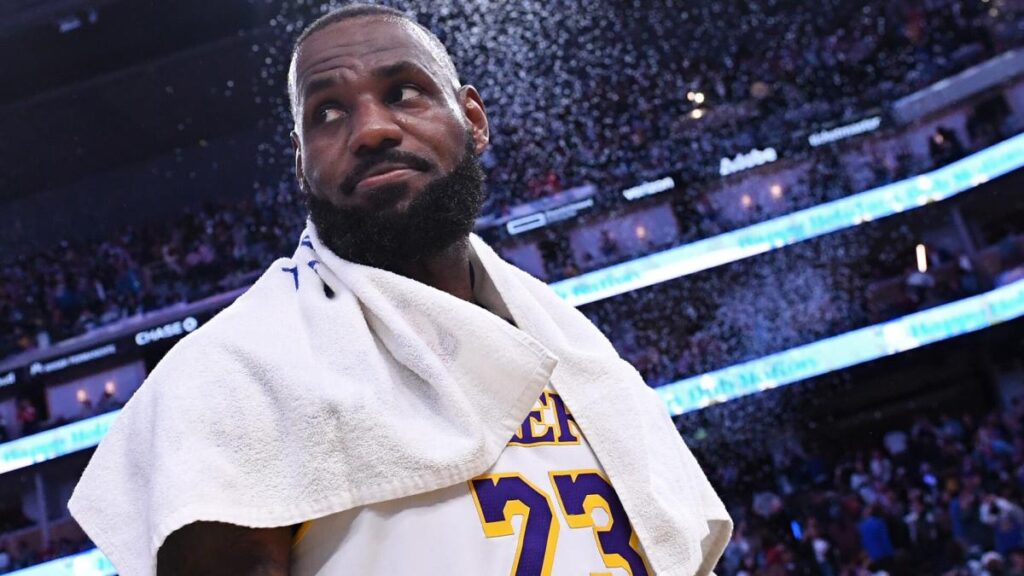Maybe it’s a sign of the times. Amid a fascinating NBA season filled with great storylines — the return of Ja Morant, the growth of Victor Wembanyama, the emergence of the Cavaliers and Rockets, big stars like Nikola Jokic playing at historic levels — much of the discourse around the game has been about the volume of 3-pointers and the ratings.
Which is why Christmas Day felt like such a win for the NBA.
“I love the NFL, I love the NFL, But Christmas is our day,” is how LeBron James summed it up.
Christmas Day was five fascinating games decided by a total of 25 points, with the game’s big stars living up to the billing. Wembanyama started the day with 42 points, 18 rebounds and four blocks in a Spurs loss to the Knicks. Kyrie Irving put up 39 points (also in a loss). Tyrese Maxey scored 33 with 12 assists to lead the 76ers past Jayson Tatum (32 points) and the Celtics. LeBron James (31 points), Stephen Curry (38) and Kevin Durant (27) all defying time.
Television ratings were up on Christmas Day, the highest they have been on the holiday in five years — despite going head-to-head with two NFL games and one Beyonce halftime show. The Lakers win over the Warriors — featuring LeBron and Curry — led the way averaging 7.76 million viewers and peaking with 8.32 million viewers. It was the most-watched NBA Christmas Day game in five years and up 499% vs. the comparable window last year (when the game went head-to-head with a better NFL matchup, one not on a streaming service).
The entire NBA television ratings discussion has happened chiefly outside league circles and is usually more clickbait than an honest assessment. The discussion often starts with a faulty premise, talking about traditional television ratings — based on people sitting down in front of a screen and watching a game — and suggesting it’s an accurate measure of the health of a sport or an accurate gauge of its popularity and impact. Watching games that way is not how most of the NBA’s younger-than-football (or baseball, or hockey) core demographic consume any media. Most of the people leaning on old-school ratings are comparing the NBA to the NFL, and they come to the discussion with an agenda (often political or cultural) that has little, if anything, to do with sports.
The fact is the NBA is winning in the only objective metric that matters — it inked an 11-year, $76 billion new television deal that moves the league into the future while making more money for owners and players (it should be noted that NBC is part of that new deal). The companies involved are not charities, these are massive media conglomerates that recognize the value and popularity of the NBA product. Moreover, as of Christmas Day, NBA viewership is only down about 4% by league metrics. Throw in that the NBA is setting internal records in social media engagement and League Pass viewership (as well as other metrics), and you get the idea that the league isn’t hurting like some want you to believe.
That’s not to say everything is rosy with the NBA or its ratings — they are down, and the aesthetics of a game averaging 70+ 3-pointers a night is a legitimate discussion. However, things are not as bad as some people hunting for engagement want it to seem.
Christmas Day showed that which is why it was a win for the NBA.
Read the full article here

